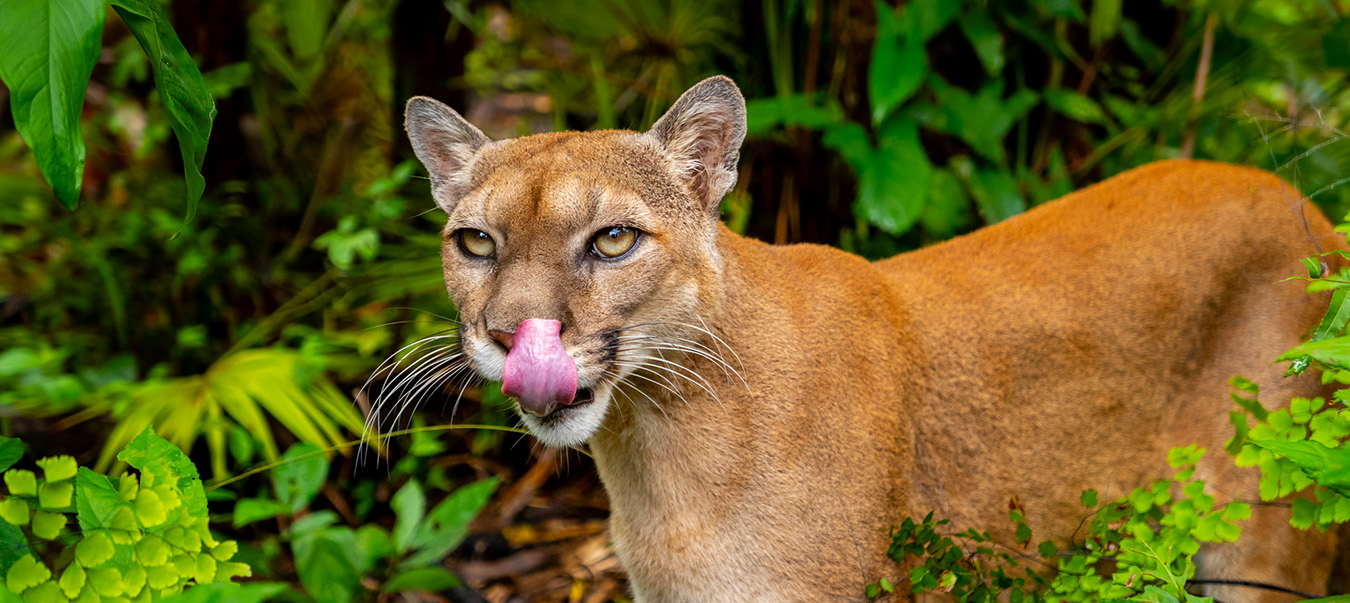
Mindo Harlequin Toad (Atelopus mindoensis) saved from extinction
Ceiba has always looked towards the future. Our conservation projects protect plants, animals, and landscapes for the benefit of future generations. Our study abroad courses train the next generation of environmental scientists and stewards. Our outreach programs engage local communities in building a better future for themselves and their families. And our Seeds of Sustainability grants help jump-start grassroots efforts around the world that will lead conservation into the future. Ceiba has blazed new ground in the way we work: we signed South America’s first conservation easement; when others are buying land, we support local communities; we listen to our stakeholders, and we support local leadership in implementing their own designs for the future.
As ever, the task ahead is towering. How do we save species and protect ecosystems, while economic needs grow ever greater and dozens of critical problems vie for our attention? But thanks to the support of people like you, we are up to the task! Our team in Ecuador is more dynamic, more diverse, and more agile than ever. Ceiba’s global partners are directing creative and inspiring projects. Our investment in environmental education has produced committed and caring local leaders. There are many signs of hope. A once-extinct toad was rediscovered in Ecuador by a Ceiba partner. Endangered capuchin monkeys are returning to our coastal reserve. And communities across the planet continue to mobilize, make themselves heard, and create a positive future.
We invite you to join Ceiba as we stride confidently into that future, and we thank you for making the world better, one step at a time.
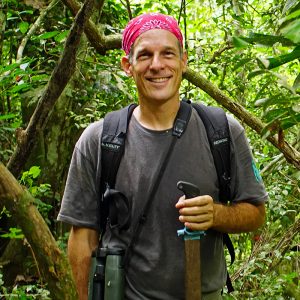 Yours,
Yours,
Joe Meisel, PhD
President
PS: What aspects of Ceiba’s work are most important to YOU? We’d love to know!
The long-term conservation of coastal forests in Ecuador is challenging, as mounting economic needs increase the pressure on these shrinking ecosystems. For over 20 years, Ceiba has promoted numerous incentives for the protection of these critically endangered forests, which harbor unique species such as the Ecuadorian capuchin monkey. Among those incentives is the exoneration of property taxes for landowners who protect forests on their land. In 2025, we supported four landowners in accessing this incentive in the Jama cantón, promoting conservation of over 1502 acres and doubling the number of beneficiaries from 2024! Ceiba is helping municipal governments implement the incentive and continues to connect land stewards with financial relief.
Ceiba’s Conservation Partners, funded by our new Seeds of Sustainability grant program, are driving local change across the world. Explore their growing impact from Ecuador to Kenya, Uganda, and Sierra Leone.
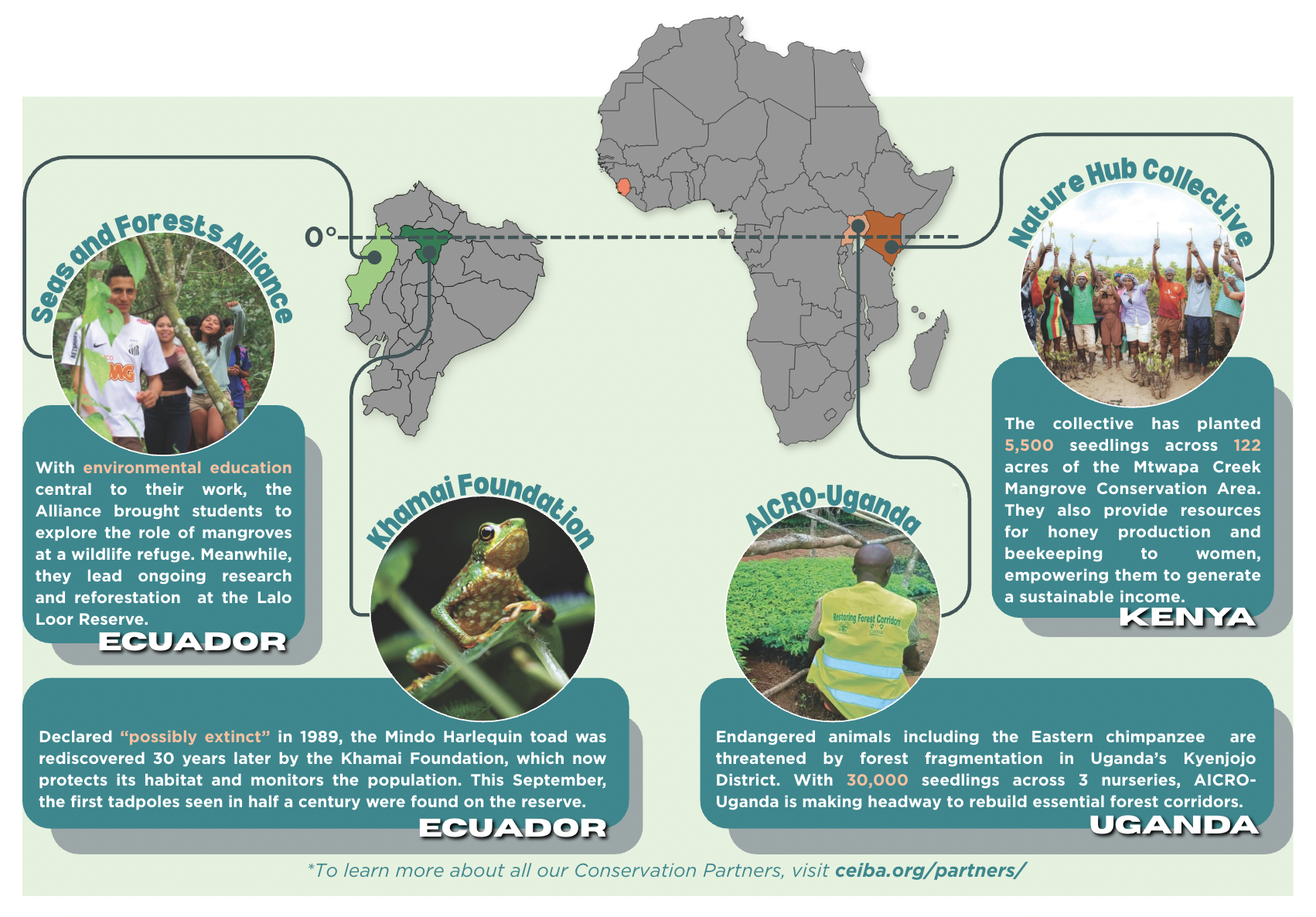
Buff-Tailed Coronet (Boissonneaua flavescens) dazzles with an acrobatic display
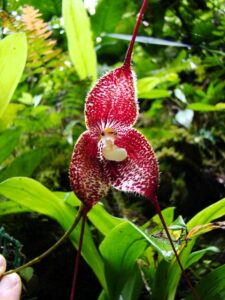 A quarter-century ago, Ceiba established the El Pahuma Orchid Reserve, protecting over 700 acres of cloud forest on the slopes of the Andes. Rich in orchids, hummingbirds, frogs, and spectacled bears, we forged a new path and signed South America’s first true conservation easement with Efrain Lima and his family, laying the groundwork for an enduring collaboration. Since that inauguration, three generations of Limas have continued to manage the reserve, receiving thousands of visitors who come to bathe in the plunging waterfalls and enjoy the mossy tranquility of this spellbinding forest.
A quarter-century ago, Ceiba established the El Pahuma Orchid Reserve, protecting over 700 acres of cloud forest on the slopes of the Andes. Rich in orchids, hummingbirds, frogs, and spectacled bears, we forged a new path and signed South America’s first true conservation easement with Efrain Lima and his family, laying the groundwork for an enduring collaboration. Since that inauguration, three generations of Limas have continued to manage the reserve, receiving thousands of visitors who come to bathe in the plunging waterfalls and enjoy the mossy tranquility of this spellbinding forest.
When Efrain passed away in 2023, the Lima family asked Ceiba for help securing the reserve’s future. Legal fees, mapping, and sorting a lifetime of entanglements takes time, money, and expertise. But we are committed to protecting this priceless ecosystem, which lies at the heart of the Choco-Andino Biosphere Reserve. Ceiba is working with local and international partners, and relying on the support of our donors, to ensure this green jewel will continue to protect rare and unique species, critical freshwater resources, and an inviting destination for nature lovers into the next century.
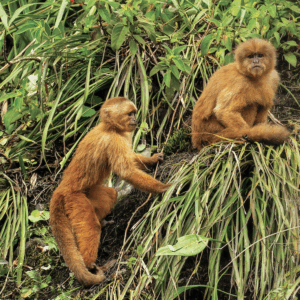 Once, the coast of Ecuador was nothing but unbroken forest, bordered by sand and surf. Pumas (see top), jaguars, and ocelots roamed the hills. Howler and capuchin monkeys swung through the trees. But as agriculture grew and the economy squeezed, families began clearing trees. Flash forward one hundred years, and now there are few forests large enough for jaguars and pumas, who have all but disappeared from the landscape.
Once, the coast of Ecuador was nothing but unbroken forest, bordered by sand and surf. Pumas (see top), jaguars, and ocelots roamed the hills. Howler and capuchin monkeys swung through the trees. But as agriculture grew and the economy squeezed, families began clearing trees. Flash forward one hundred years, and now there are few forests large enough for jaguars and pumas, who have all but disappeared from the landscape.
But, much of the original biodiversity survives in forest patches dotting our region. Ocelots still hunt the understory, and howler monkeys keep enjoying a leafy diet. And the Ecuadorian capuchin monkey, recently declared a new and critically endangered species (Cebus aequatorialis), is making a comeback. Rampant hunting had decimated populations in the 70s and 80s, but as conservation has taken hold in the region — thanks to Ceiba and our partners — the capuchins are returning! Though absent from the Lalo Loor Reserve for many years, a troop of at least 6 individuals was spotted in September by an intern conducting weekly primate surveys. This incredible finding reminds us that even small reserves play a huge role in protecting endangered species.
2022 semester students watch sunset waves crashing against Galapagos coast
Discovering Ecosystems is Ceiba’s core environmental education program for coastal communities, through which we connect with one of the most sensitive and transformative stages of life: adolescence. It’s a journey full of learning experiences and challenges that often surpasses the imaginable.
 Thanks to our partnership with A Mano Manaba, we brought youth groups to Puerto López, a protected area known as the “mini Galapagos,” for snorkeling and diving amid abundant marine biodiversity. The transformative power of the experience prompted Rodolfo, 17, to reflect, “we live near the sea, but we didn’t know what was inside it.” These opportunities are fostering growing awareness of the need for ocean protection. In the past, sea turtles were caught in nets and killed; this year, local teenagers have rescued 3 sea turtles from this fate, returning them to the sea unharmed.
Thanks to our partnership with A Mano Manaba, we brought youth groups to Puerto López, a protected area known as the “mini Galapagos,” for snorkeling and diving amid abundant marine biodiversity. The transformative power of the experience prompted Rodolfo, 17, to reflect, “we live near the sea, but we didn’t know what was inside it.” These opportunities are fostering growing awareness of the need for ocean protection. In the past, sea turtles were caught in nets and killed; this year, local teenagers have rescued 3 sea turtles from this fate, returning them to the sea unharmed.
Another enriching experience was our visit to the National Center for Aquaculture and Marine Research in Santa Elena, made possible through partnering with UNICEF. School kids from our region and 20 teenagers from other provinces of Ecuador learned about the connection between science, research, and conservation. They enjoyed a rare opportunity to swim among sea lions, humpback whales, and coral reefs. These encounters foster friendship and collaboration between emerging environmental leaders, reaffirming their shared commitment to education, nature, and life. They remind us that true conservation is born from experience and blossoms in the awareness of a present that is already changing.
Back in 2007 an enthusiastic group of just six students embarked on the first ever Tropical Conservation Semester (TCS) in Ecuador. With Ceiba co-founders Joe Meisel and Catherine Woodward, they set off to explore the Andes, Amazon, and Galapagos, and their lives were forever changed. This January, the TCS program will celebrate its twentieth year! Alumni from the program have gone on to incredible and impactful careers. Some are professors of biology, like Katherine Lininger (2008) at the University of Colorado and Lauren Hennelly (2012) at Rice University. Others have made a mark on conservation, like Stephanie Wester (2010) with WWF and Mark Ladd (2009), a lead coral scientist at NOAA. A few alums even work for Ceiba! Anna Choles (2024) is Ceiba’s communications coordinator, while Teal Guetschow (2012) co-instructs our Coral Reef Ecology course in Belize and leads the marine biology component of TCS in the Galapagos Islands! We are so proud of the achievements of our alumni, who represent the future of conservation and education. Want to know more about Ceiba graduates have accomplished? Connect with our alumni on LinkedIn!
We aim to inspire and empower students to become better-prepared stewards of our planet. Tropical Conservation Semester alum Catherine Nguyen summarized the personal impact of her time abroad: “this program taught me so much about wildlife and environmental conservation, but also flexibility, interpersonal communications, fieldwork preparation, and cultural awareness in places I never would have been able to witness otherwise.”
Ceiba is delighted to welcome two new board members, both alumni of our education programs!
 Nicholas Pomplun is a carbon and biodiversity consultant with expertise in forest ecology and nature-based climate solutions. He brings global project experience and a passion sparked in Ecuador to advance Ceiba’s mission.
Nicholas Pomplun is a carbon and biodiversity consultant with expertise in forest ecology and nature-based climate solutions. He brings global project experience and a passion sparked in Ecuador to advance Ceiba’s mission.
Dr. Xavier Haro-Carrión is a geography professor at Macalester College who specializes in deforestation and land-use change in coastal Ecuador. He strengthens Ceiba’s work with coastal municipalities and community-led conservation.
Kapok is the Malay name of the Ceiba tree, Ceiba pentandra. The seeds of the Ceiba, or silk cotton tree, are embedded in a silky fluff known as kapok, packed inside a large pod. When the pod splits open, the fibers carry the seeds away on the wind. We named our newsletter Kapok to represent the “spreading of seeds” of information, and the love of nature.